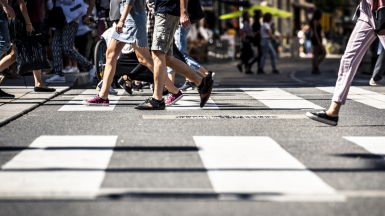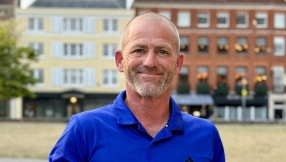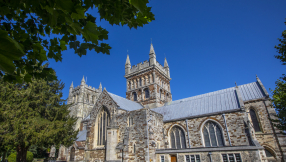
A recent study reveals that many apparent non-believers in the UK and other large Western nations hold spiritual beliefs despite lacking formal religious affiliation.
In the UK, around a quarter (24%) of religious 'nones' believe in God, compared to 27% in Germany, 20% in France, 25% in Canada, and 45% in the US. The term 'nones' refers to people who are religiously unaffiliated and who identify as “nothing in particular” when it comes to religion.
The lowest figure among the nations studied was Hungary, with 9% of nones saying they believed in God, according to the Pew survey conducted across 22 countries from January to May 2024.
Not only do a number of nones actually believe in God, but the research also revealed that even among those who do profess a religious affiliation, there are some who do not actually believe in God.
In the UK, 85% of the religiously affiliated believe in God, while in both Germany and the USA, 91 per cent of those who said they were affiliated to a religion said they believed in God. The lowest figure was Sweden, where only 59 per cent of the religiously affiliated believed in God. In Colombia and Brazil, 100% of the religiously affiliated said they believed in God.
The importance of religion is unsurprisingly low among nones. In the UK, only 13% of nones consider religion very or somewhat important, compared to 14% in Germany, 10% in France, 9% in Canada, and 19% in the US.
Belief in an afterlife is more prevalent than belief in God among nones. In the UK, a third of nones believe in an afterlife, compared to 30% in Germany, 36% in France, 43% in Canada, and 42% in the US.
Gender differences are also notable: women are generally more likely to hold spiritual beliefs. In the US, 63% of female nones believe parts of nature can have spirits, compared with 46% of male nones.
Similar trends appear in Canada (56% women vs. 32% men) and France (57% women vs. 42% men). In the UK the figure was 31% of male nones compared with 49% of female nones.
Despite their lack of religious affiliation, some nones engage in spiritual practices. In the UK, 19% of nones pray at least occasionally, compared to 23% in Germany, 16% in France, 29% in Canada, and 55% in the US. Around a third (34%) of British nones say they go to religious services at least occasionally.
On religion’s societal impact, UK nones are particularly critical. A striking 83% believe religion encourages superstitious thinking, and 67% say it mostly hurts society. Only Greek (74%) and Australian (73%) nones ranked higher than the UK in believing that religion hurts society.
Other Western nations were characterised by high proportions of nones who feel the same - two thirds in Canada and the Netherlands, and nearly two thirds (64%) in Germany. By contrast only a fifth of Singaporean nones hold the same view.
The Pew report said: "'Nones' in Europe tend to be especially likely to voice negative views of religion. For example, most religiously unaffiliated adults in Spain say that religion encourages superstitious thinking (77%) and intolerance (71%), and that it mostly hurts society (62%).
"However, in a handful of countries in other regions, religiously unaffiliated people are more positive about religion.
"In Brazil, Singapore and South Africa, for instance, only about a quarter or fewer of 'nones' say religion mostly hurts society. Majorities of 'nones' in these countries say religion mostly helps society.
"As a general pattern around the world, though, 'nones' are much more likely than adults with a religious affiliation to express negative views about religion."













